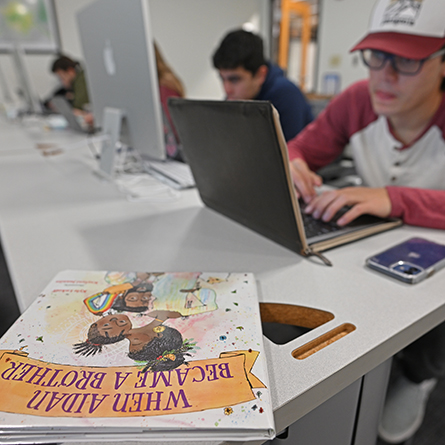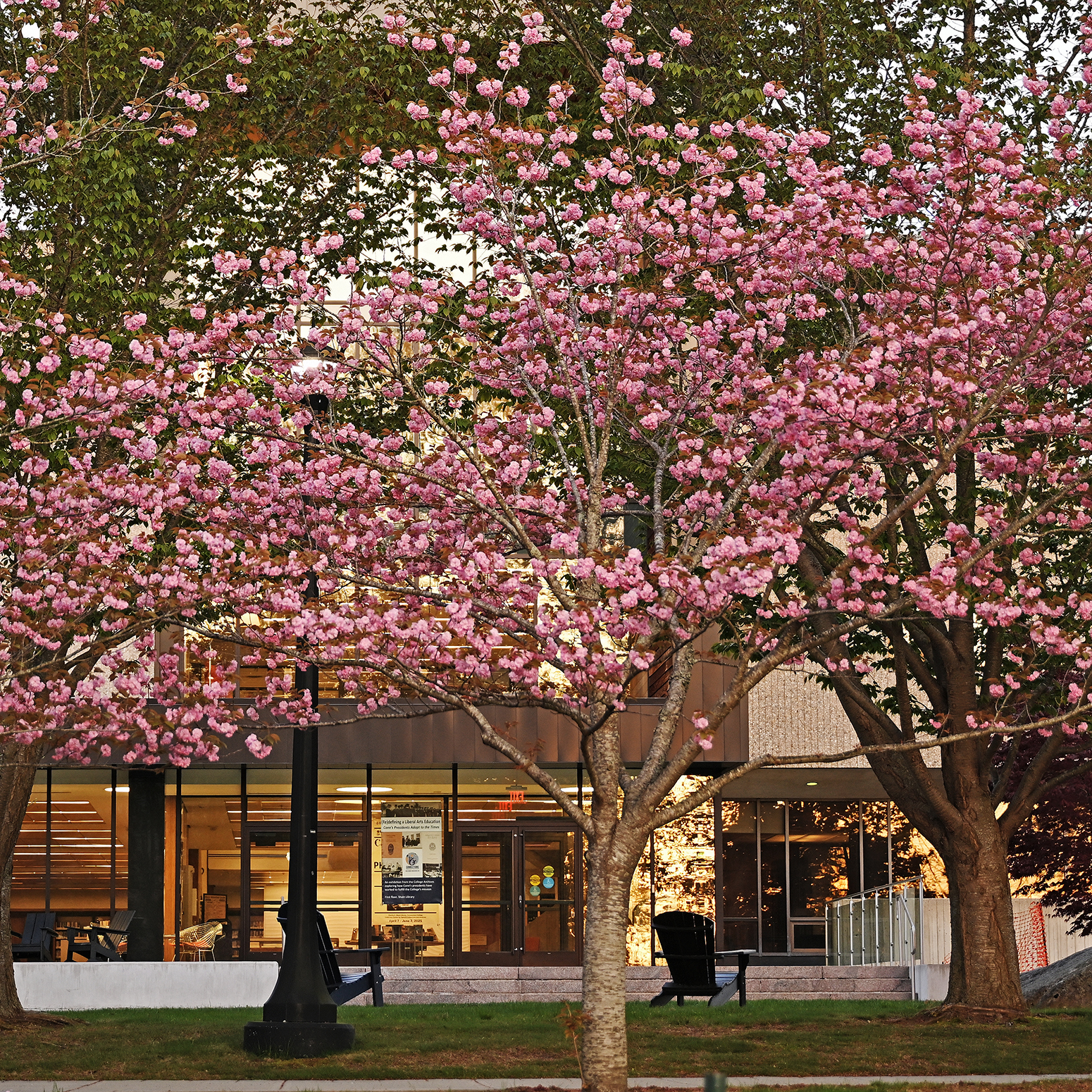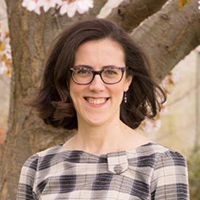
Education class works to revamp and modernize local elementary school libraries
Visiting Assistant Professor of Education Karen Pezzetti’s “EDU 313: Children, Books & Culture” class is working to develop and diversify local elementary school libraries with help from grants. The first was from Eversource, which sent representatives to Conn on Feb. 6 with a check for $2,000.
This semester is Pezzetti’s first time attempting the project, which involves her 26 students in pairs working with a dozen classrooms across five local schools: Nathan Hale Arts Magnet Elementary School, Harbor Elementary School, Bennie Dover Jackson Middle School, Charles Barnum Elementary and Regional Multicultural Magnet School.
“I think it’s good for the students to work in pairs because they bounce ideas off of each other; they can challenge each other,” she says. “Sometimes I pair a cautious person with an adventurous person.”
The project began after Pezzetti emailed a flyer she created offering free books and information to teachers she knew in New London Public Schools. She also asked her students from last semester who are now placed in the field to distribute the flyers.
About two weeks before spring semester, eight teachers had signed up. Almost three dozen more had asked to be included by the following week. While Pezzetti doesn’t have enough students to accommodate everyone she’d like to, she’s heartened by the response.
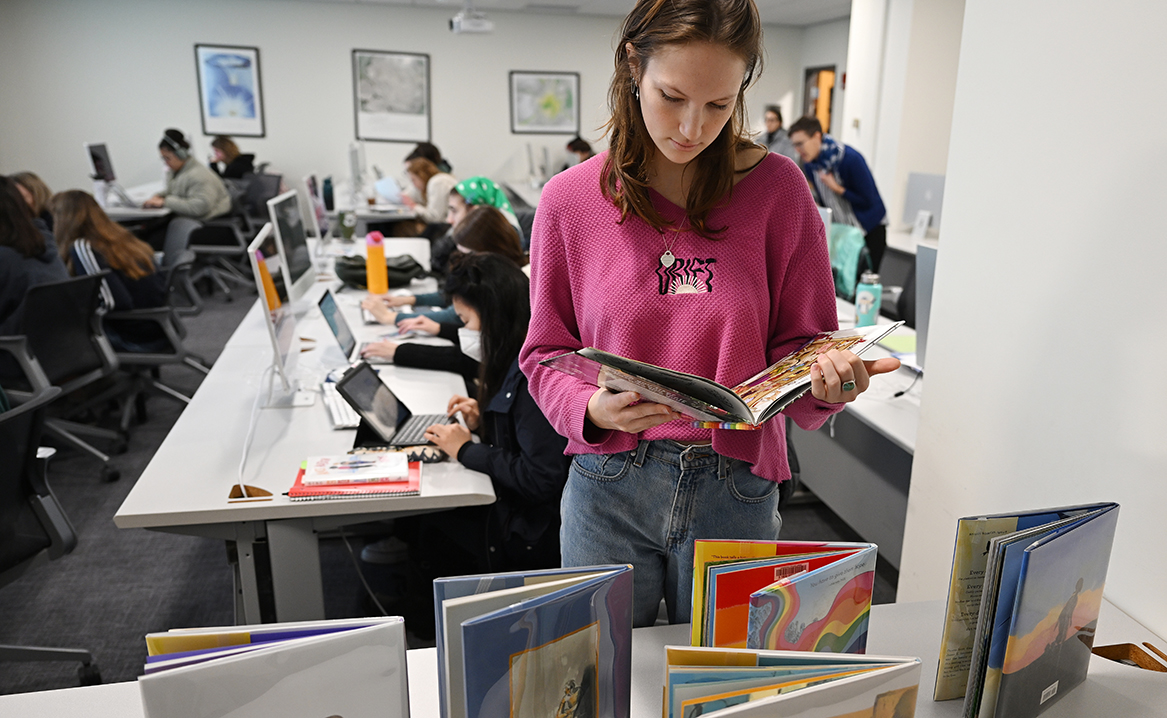
For now, her students are taking inventory of their classrooms’ existing libraries to identify gaps in content, with an eye toward modern themes.
“During our class meetings, we read a wide range of children’s books, including those that are contentious and sparking debates,” Pezzetti explains. “Some have even been banned in some schools and libraries. For example, we are reading books with trans and nonbinary protagonists. We’re also reading books that cover hard history, like one we looked at yesterday about the Tulsa Race Massacre in Oklahoma in 1921. Students are developing their judgment about what books are appropriate for which contexts.”
Some Conn students are choosing to become experts in certain types of children’s literature while others are volunteering once a week in a classroom to get a sense of what books that particular group would benefit most from, Pezzetti says. Her students are developing activities to learn what the children want to read about, books they’ve enjoyed, and what their reading abilities are.
“Those activities look different for a kindergarten classroom versus a fifth-grade classroom,” she adds. “Some students are nervous about this because they’re going from one time of observation, or maybe two, to trying to lead all this interactivity. But then I hope they’re going to have some data for us about who these young people are.”
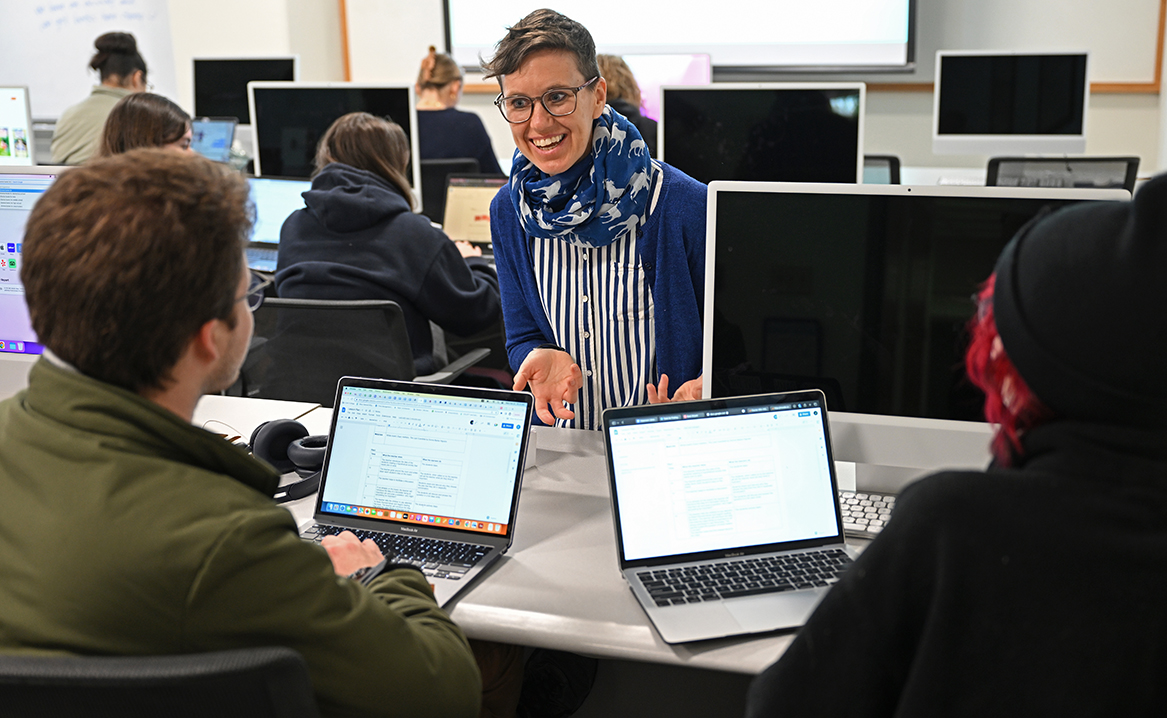
After spring break, Pezzetti’s students will submit a wish list of all the books they would give their assigned classroom if they could. Then, based on how much grant money they have, the class will create shopping lists and hopefully distribute the books by the end of April.
She says, “I think the new books will benefit our partner classrooms, but the project also really benefits my students. They’re paying so much more attention to the things we’re doing in class and really considering each topic and book with this real-world lens of application.”
Follow Conn on Instagram for project updates throughout the semester.
